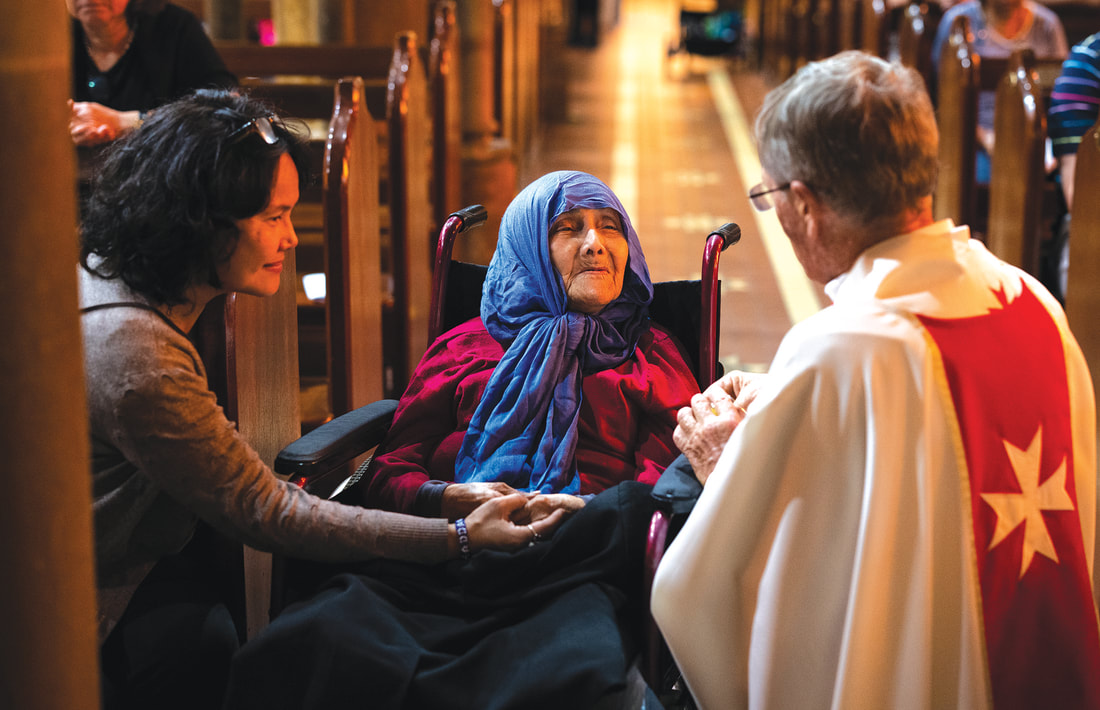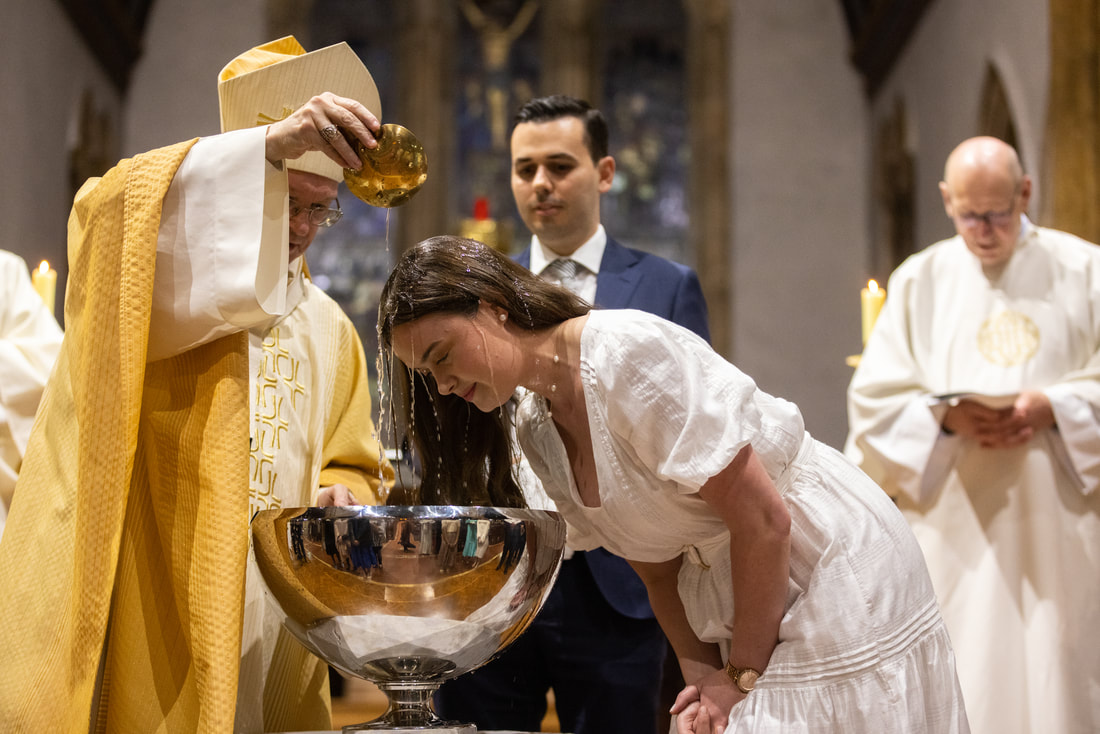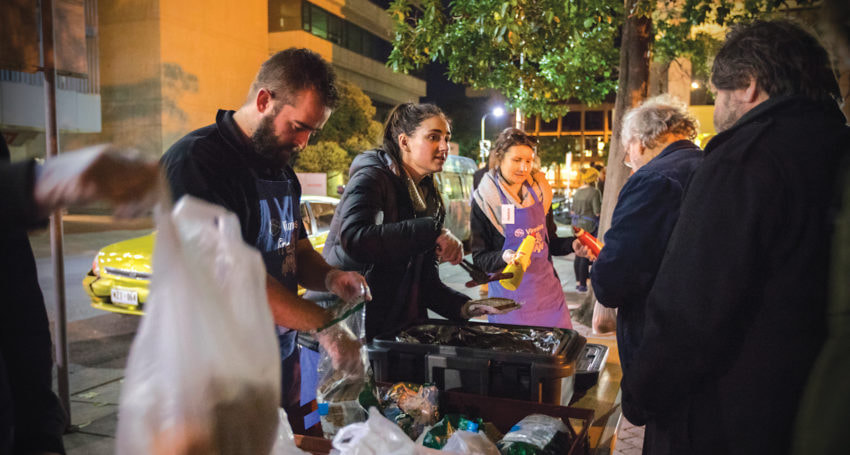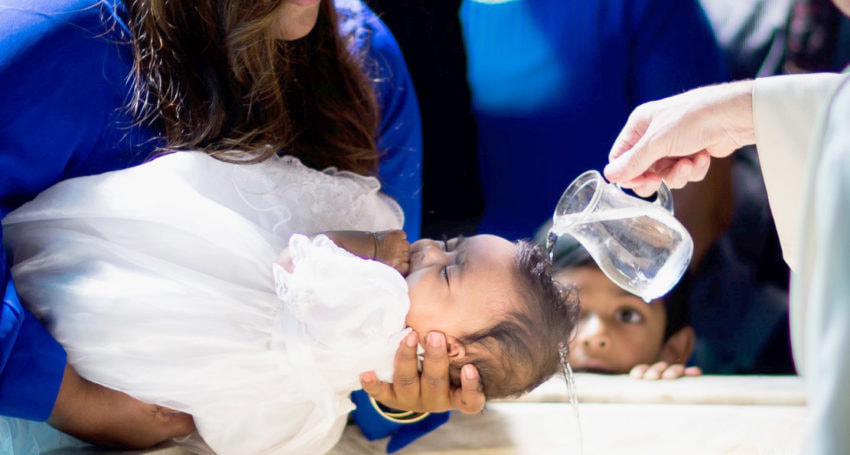|
By Dr. Jenny O'Brien The experience of sickness and suffering can make us feel anxious and alone. We need someone to be with us, to comfort us, to listen to us, to encourage us. This doesn’t apply only to the person enduring the pain or illness, but to those who love them and care for them who wonder, ‘What can I do? What should I do? Who can I turn to?’
Sometimes these questions confront us as we or someone we love is faced with the prospect of a serious operation or treatment. Sometimes they strike us when we are in the midst of deep distress or depression. Sometimes it is as we sit with someone we love who is nearing their death. Sometimes it is as the difficulty of coping with ongoing chronic pain overwhelms us and we wonder how we can cope. And sometimes it is as we endure the sheer frustration of the increasing limitations that come with ageing.
0 Comments
By Kathy Horan Each year we wonder anew and give praise and thanks to God for coming and dwelling among us, for taking on our human condition and enabling us to come to God as faithful followers of Jesus.
A couple of weeks ago we celebrated the baptism of Jesus, and recalled the words God spoke to Jesus: ‘You are my Son, the Beloved; with you I am well pleased.’ (Luke 3:22) With these words, Jesus was named and claimed by God, and entrusted with God’s dream for the world, that all people would come to hear and take to heart the profound truth of God’s love, tenderness and mercy for each one of us. Immediately after his baptism, we are told that the Spirit drove Jesus into the wilderness where he fasted, prayed and discerned his mission, returning then to announce that the time had come, the kingdom of God was drawing near and all were invited to repent and believe the good news. By Kathy Horan The end of another extraordinary year is drawing closer and our daily lives are occupied with the things needing to be completed for this year, along with thoughtful preparation and planning for the year ahead.
There is a lot of reflection on the year that has almost ended, lessons to be learned, hopes for the new year to be identified, acknowledgements to be made and goals to be set. Somewhere in the middle of these two strands, we continue with the day-to-day round of activities. As Catholics, we are also steeped in the rhythm of the Church’s liturgical year, a rhythm that sees us remembering and acknowledging key moments and experiences in the life of Jesus who came among us as a human being, who called people to join him in his mission of proclaiming the good news of the reign of God. By Kathy Horan Each year when we celebrate the feast of Pentecost, we rejoice and celebrate the Spirit of Jesus alive in our midst – in us, in the Church and in the world.
The story of Pentecost reminds us of the birth of the Church and the transformation of the disciples from being fearful, uncertain individuals into spirited, bold proclaimers of the good news of Jesus. At that Pentecost time, they finally began to grasp the importance of what Jesus had said and done, and urged on by the Spirit of Jesus, they began to take up the challenge of being missionary disciples, spreading the joy of the gospel, and baptising people in the name of the Father, and of the Son, and of the Holy Spirit. Author: Jenny O'Brien Did you know that the first official Roman ritual for Christian Marriage only appeared in 1614 and was only officially recognised as one of the seven sacraments in the Middle Ages?
In the first millennium the Church accepted marriage as a secular reality and there was no Christian ritual accompanying its celebration. It “belonged” to the family and to civil authorities. The only role that the Church played was to discourage Christians from partaking in any pagan practices contrary to the Christian spirit (like sacrificing to idols.) Author: Jenny O'Brien When a young couple approaches the Church to be married, their intention is to formally ratify the deep love they have for each other in the presence of their family and friends, with the blessing of the Church. It is assumed that they will have some connection with the Church: it may be that they want to be married in the same church in which their parents were married, or in the chapel attached to the school that they attended, or simply because the particular church building is very beautiful.
|
|
Catholic Archdiocese of Adelaide
|




